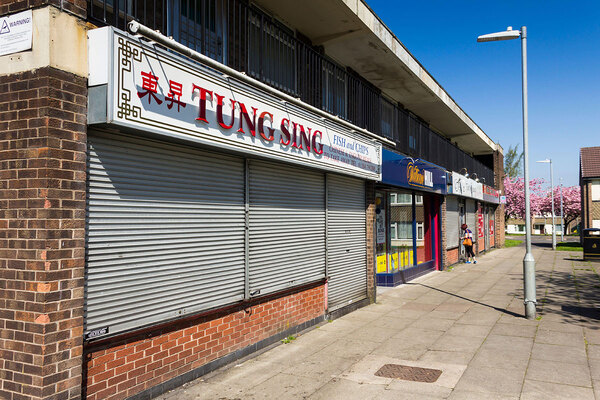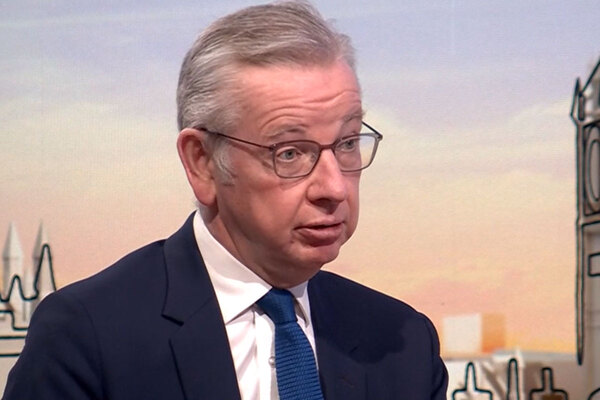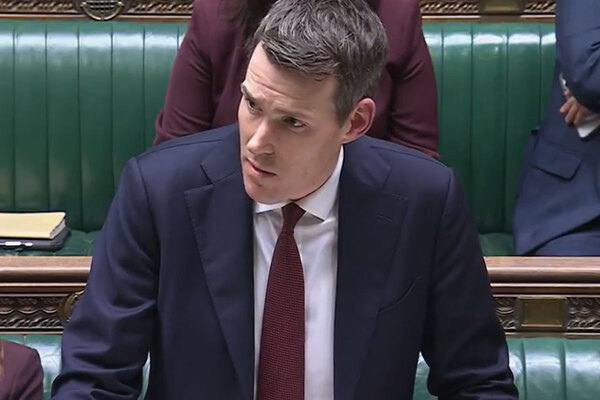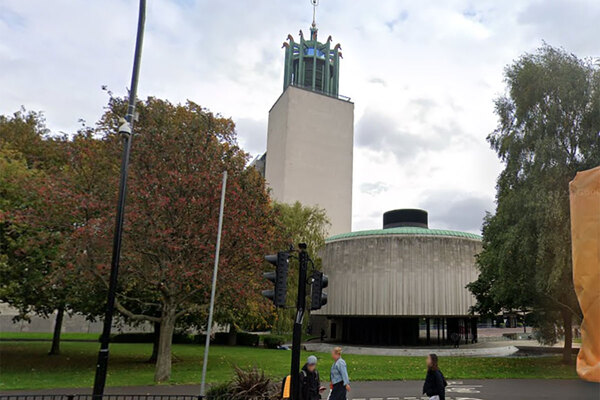You are viewing 1 of your 1 free articles
Everything, everywhere, all at once: Gove is proposing housing policy from an alternate reality
Inside Housing columnist Jules Birch reflects on the housing secretary’s latest announcements
“Everything, everywhere, all at once” is how Michael Gove described the welter of proposals on housing announced this week, which are under consideration for the Budget next month.
In one of the alternate realities that make up the multiverse in the 2022 film, this is his ‘long-term plan for housing’ producing results at last. In another, the Conservatives end their in-fighting and build on their victories in Thursday’s two by-elections.
In an interview with the Sunday Times, the housing secretary made clear what he believes is at stake if young people feel they are excluded from homeownership. He said: “If people think that markets are rigged and a democracy isn’t listening to them, then you get — and this is the worrying thing to me — an increasing number of young people saying, ‘I don’t believe in democracy. I don’t believe in markets.’”
He also said he remains committed to a ban on no-fault evictions via the Renters’ Reform Bill and is determined to face down opposition from “vested interests” to the Leasehold and Freehold Reform Bill.
The interview previewed a series of announcements this week that aim to boost housebuilding on brownfield land, tackle planning delays in London, allow more conversions of commercial buildings into homes and set out details of the extension to the Affordable Homes Guarantee Scheme.
The housing secretary is also pushing for a “housing moment” in next month’s Budget, lobbying the chancellor for cuts in stamp duty, an extension of the mortgage guarantee scheme to cover first-time buyers with a 1% deposit and a ‘foreign ownership levy’ on international investors who buy residential property here.
Mr Gove certainly cannot be faulted for lack of action or for trying to pull all the levers he can, but his announcements add up to rather less than the sum of their parts.
Tellingly, housing minister Lee Rowley repeatedly refused to answer when asked on the Today programme on Tuesday how many new homes would be produced.
Take the consultation on strengthening planning policy for brownfield development. This is something that all governments have sought to do for years (there is already ‘permission in principle for land on brownfield registers), but this plan will apparently ‘turbocharge’ brownfield projects.
“Mr Gove certainly cannot be faulted for lack of action or for trying to pull all the levers he can, but his announcements add up to rather less than the sum of their parts”
The favoured mechanism is a new ‘presumption in favour of brownfield development’ recommended by an independent review of the London Plan but applied across the 20 biggest towns and cities in England where councils are failing to meet the targets in their housing delivery test.
It’s not the worst idea in the world, and it builds on the presumption in favour of sustainable development in the National Planning Policy Framework (NPPF).
But a government that abolished housing targets across England as a whole in favour of “the right homes in the right places” has been converted to them in the biggest towns and cities where it has already applied a 35% ‘urban uplift’ to housing numbers.
Only a real cynic would point out that ‘the right places’ seem to be constituencies represented by Labour MPs, but that view is only reinforced by a caveat in the press release. “This new approach will put rocket boosters under brownfield regenerations projects across the country and provide the new homes the country needs, without affecting existing protections including for residential gardens and ensuring protection for the character of suburban neighbourhoods,” it said.
‘Garden grabbing’ was in theory banned by Eric Pickles in 2010 while protection for suburban ‘character’ was part of the surrender to Conservative backbench rebels on planning in 2022.
One of the leaders of that rebellion was Theresa Villiers, who campaigned against plans to build blocks of flats on tube station car parks near her Chipping Barnet constituency. You can’t get much more brownfield than a car park but will its suburban ‘character’ trump that?
None of this is as radical as the language about ‘rocket boosters’ implies. There is nothing to confront the awkward reality that greenfield as well as brownfield land will be needed to tackle the housing shortage and there is nothing that moves beyond easy rhetoric about ‘planning’ to confront awkward questions about affordability.
It’s a similar story with the other announcements.
Perhaps there are too many hoops for developers to jump through in London, including duplication between the boroughs and the Greater London Authority, but that was as true under Boris Johnson and the Conservatives as it is under Sadiq Khan and Labour. Virtually all sites in London are brownfield and the this is about more than just planning.
“What’s missing is any mention of affordable housing requirements constraining development”
The independent review identified another key factor: thanks to the complexity of brownfield sites, volume house builders account for a much smaller proportion of development than in other regions and more than 60% of homes are built by smaller firms. These are more constrained by shortages of skilled workers and development finance and more likely to find the planning system cumbersome.
What’s missing is any mention of affordable housing requirements constraining development, despite this being raised by “many London boroughs and developers” with the department.
The authors of the review rejected the option of suggesting “alterations to the policy requirements which are most often cited by commentators as inhibiting the timely delivery of new homes on brownfield sites”. They argued that it is important “to distinguish between what is anecdotal and what is evidenced when it comes to re-framing existing policies in such a way as to unblock housing delivery”.
Another extension of permitted development may allow more commercial buildings to be converted into homes, but it also risks a repeat of the problems that blighted the original idea.
The ideas put forward for the Budget look equally tired: cuts in stamp duty tend to end up in the pockets of existing home owners; a 1% deposit sounds a lot better than a 99% mortgage but they are the same thing; and a levy on overseas buyers sounds good politically but may have a marginal impact.
Mr Gove deserves some credit for sticking to his guns on Section 21 and leasehold and for his attempt to warn his Conservative colleagues about the consequences of failing to tackle housing.
But as he emerges from the multiverse, his ‘everything, everywhere’ approach has to confront the reality of a world in which he is hemmed in by the internal politics of a party that still puts protecting the interests of its well-housed current voters far above addressing the housing needs of future ones.
Sign up for our development and finance newsletter
Already have an account? Click here to manage your newsletters













